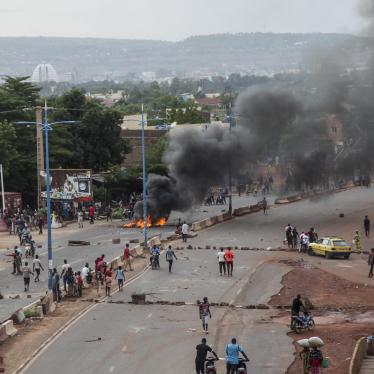The facts surrounding the January 3 French airstrike near Bounti, in central Mali, which villagers claim killed 19 civilians at a wedding, remain disputed. The French government continues to oppose carrying out an investigation into the attack, saying its forces committed no errors.
A February 16 decision by the European Court of Human Rights should be an important reminder to France of the obligation of states under international humanitarian law to investigate serious allegations of war crimes committed by their forces.
In the early morning hours, ISAF bombed the tankers using US F-15 aircraft. While ISAF initially disputed accounts that civilians were among the casualties, the regional commander dispatched a team of German military police to investigate. Despite several requests by the UN, ISAF did not release the unclassified version of its report nor its video footage.
Ultimately several German officials resigned when it became known that they withheld information that civilians had been killed and injured. According to the UN, the explosion killed at least 74 civilians, many of them children.
In the days and weeks after the strike, German military, judicial and parliamentary authorities opened investigations to assess whether the commanding officer at the scene had exercised sufficient caution prior to ordering the strike and whether he complied with the applicable rules of engagement. Yet none of these investigations led to criminal accountability – only leaked information resulted in resignations.
France’s response to the January 3 airstrike in Mali has been much more problematic, with officials contending that any allegations of an illegal strike were rumors.
France alleges all those killed were armed Islamist fighters. To Human Rights Watch’s knowledge, neither the French Defense Ministry nor its public prosecutor have opened investigations into the circumstances surrounding the Bounti strike.
Despite pressure from some French parliamentarians, the Senate and National Assembly have yet to demand a review of classified images taken by a drone shortly before the strike.
France should recognize longstanding international humanitarian law, reiterated by the European Court of Human Rights, that states are obligated to investigate alleged war crimes committed by their forces.







